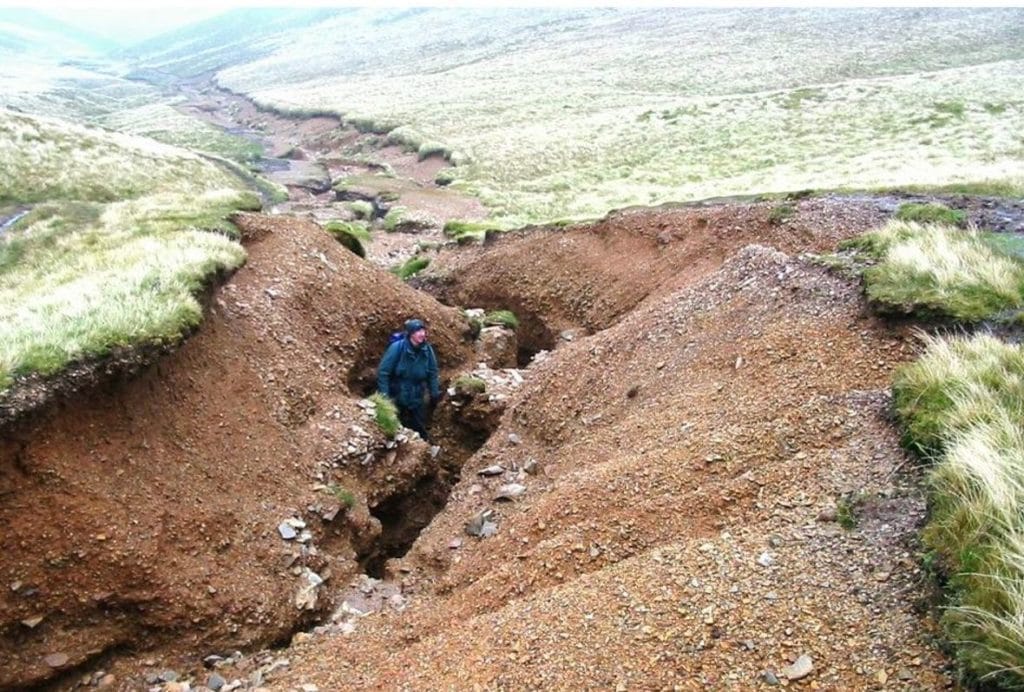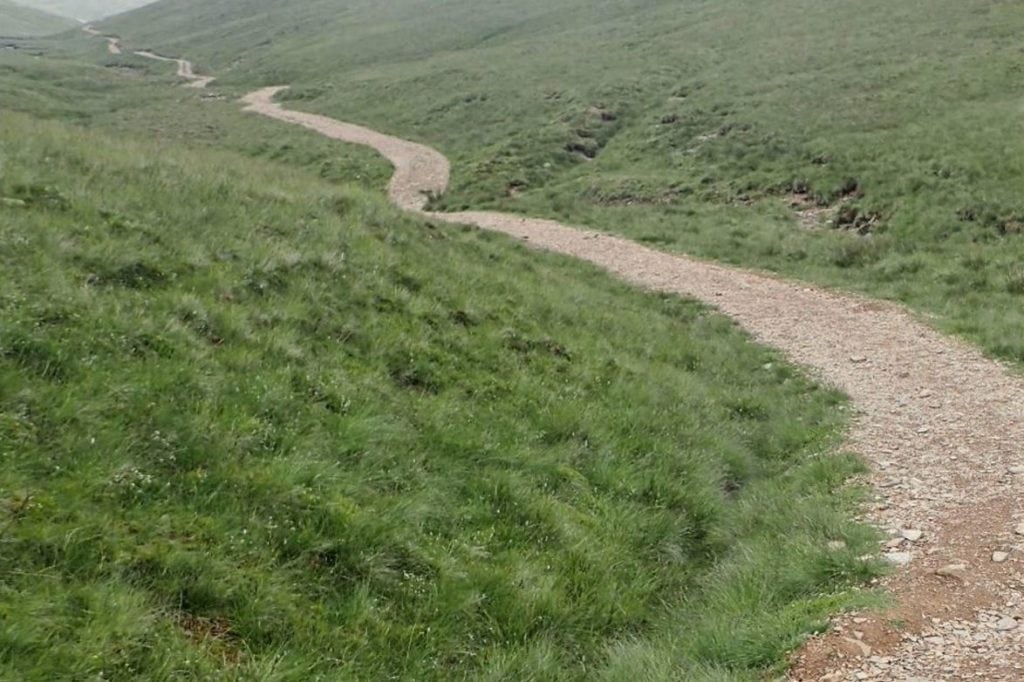
A conservation charity responsible for removing unsightly scars across the Lake District landscape says it needs £500,000 each year to tackle rising erosion levels.
Fix the Fells, which is marking its 20th anniversary, says that over two decades it has spent nearly £10 million mending damage to hundreds of paths and repairing erosion on mountain areas.
But with higher visitor numbers and extreme weather caused by global warming speeding up erosion in the Lake District, the work carried out by Fix the Fells – a partnership programme between the National Trust, Lake District National Park, Natural England, Lake District Foundation and Friends of the Lake District – is needed more than ever.
Twenty years ago, unsightly scars caused by countryside users and rainfall plagued the Lake District landscape, in some instances creating gullies measuring 30 metres wide and four metres deep.
Recognising that something had to be done, several Lake District organisations got together to seek funding from the Heritage Lottery Fund. The bid was successful and led to the formation of Fix the Fells in 2001.
Since then hundreds of paths and erosion scars across the Lakes have been repaired to protect the much-loved scenery and precious wildlife.
Over the last 18 months, as a result of the pandemic and more people holidaying at home and visiting and enjoying the Lake District, erosion levels have increased.

With £500,000 spent in a typical year on repairs, and with every metre of path costing £150 to create, Fix the Fells needs donations to help repair paths damaged in the last 18 months, as well as fundraising for ongoing maintenance and repairs.
Fix the Fells programme manager Joanne Backshall said: “It’s hard to imagine how some of the fells would look today if we hadn’t been able to start protecting this very special area of Britain.
“Some of the biggest challenges we’ve tackled over the past 20 years include the popular paths in the Langdale and Wasdale valleys, as well as the many mountains around Coniston, Grasmere and Keswick, which are all showing signs of increased use and resultingwear and tear since the pandemic began.
“Even over the last two decades we’ve started to see the impact of climate change. Heavy rain can damage the landscape by washing away large quantities of bare soil and stone and depositing it in rivers and lakes below.
“Combined with the human impact of thousands of feet tackling the hundreds of miles of paths across the Lake District, we need support more than ever to keep on top of the amount of repairs required on the upland paths.”
Fix the Fells relies on fundraising and grants to survive and carry out its vital work as well as funding from the European Regional Development Fund. The partnership fixes and maintains 350 paths covering more than 400 miles of paths across the UNESCO world heritage site.
Joanne added: “Our core aim is to protect the spectacular Lake District scenery and environment by repairing and protecting the upland path network and its precious biodiversity.
“Excessive erosion to popular walking routes doesn’t just leave a visual impact on the landscape it also affects wildlife.
“Once vegetation is lost through erosion, soil and stone can quickly wash off the hillside. This general loss of habitat and degradation can affect rare mountain plants and animals already at risk and living at the very edge of their range.
“Degradation also has a harmful impact on the rivers and lakes below. Sediment washed off the hillside can cover the gravel in rivers and lakes used by fish to lay their eggs, reducing their breeding habitat. Sediment will also impact plants and insect numbers, which in turn will attract less birds.”
Richard Leafe, chief executive of the Lake District National Park Authority said: “Due to our changing climate and more erosion through intense rainfall, this vital maintenance work is needed on our high fells more than ever.
“We know how important the Lake District has been over the course of the pandemic as we have welcomed many new visitors over the past year. As more people come to enjoy all the health and wellbeing benefits the Lake District has to offer, we’re very grateful to our colleagues at Fix the Fells and the amazing team of volunteers for all that they do.”
The conservation charity also has several projects underway thanks to £5.8 million of funding from Defra’s Green Recovery Challenge Fund which is funding eight projects across the country to include work on flood plains and tree and hedgerow planting and creation which will also be natural ways of slowing the flow of water to help prevent landscape flooding and erosion.








